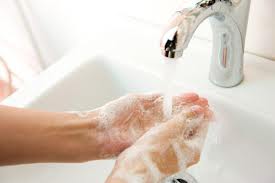 Infection is always a risk following surgery. Your skin serves as a natural barrier to prevent foreign matter from getting into your body and doing serious harm. Of course, any time the skin is cut open, there is a risk of infection because there is a breach in that natural defense barrier. Any surgical procedure will carry the risk of infection. While your risk of developing an infection following cosmetic surgery is relatively minor, at only about 1 percent, the chance is still there. Read on for tips on how to reduce your risk for infection after surgery. Of course, if you suspect that you may have developed an infection, your best course of action is to call your doctor as soon as possible to schedule a follow-up visit.
Infection is always a risk following surgery. Your skin serves as a natural barrier to prevent foreign matter from getting into your body and doing serious harm. Of course, any time the skin is cut open, there is a risk of infection because there is a breach in that natural defense barrier. Any surgical procedure will carry the risk of infection. While your risk of developing an infection following cosmetic surgery is relatively minor, at only about 1 percent, the chance is still there. Read on for tips on how to reduce your risk for infection after surgery. Of course, if you suspect that you may have developed an infection, your best course of action is to call your doctor as soon as possible to schedule a follow-up visit.
What Are the Risks if an Infection Occurs?
An infection is actually an overgrowth of bacteria under the skin. It can affect how the incision site heals, which may ultimately affect its final appearance once it has healed. This can leave you with a much more visible scar than you were expecting. If a more severe infection develops, you may actually need to have the incision site drained, which could leave an even bigger scar than the original incision. If your surgery involves any sort of implant (such as a breast augmentation), you may need a second surgery to have the implant removed; this is rare and only required if the infection spreads to the implant from the incision site.
What Can I Do to Reduce My Risk of Infection?
You will be given antibiotics to take both before and after surgery. These antibiotics will guard against infection. Take them as directed. Follow any post-surgery bathing or showering instructions to keep the incision site clean and dry. Don't unnecessarily touch the incision site or sutures. Germs on the fingers are one of the leading ways an infection can be transmitted to the incision site. If you need to change your dressing or bandage, wash your hands thoroughly with antibacterial soap before doing so.
How Will I Know if I Have Developed an Infection?
The most common indicators for infection will be pain, redness, or warmth at the incision site. Any foul odor, pus, or other clear fluid leaking from the incision site may also indicate infection. In more severe cases, you may develop a fever of 101.5°F or higher. If you notice any of these symptoms, call your doctor's office immediately to schedule a follow-up visit. It is best to do this as soon as you suspect an infection may have developed, as more severe infections may actually become life-threatening if left untreated.
By following a few simple rules to keep your incision site clean and dry, you should heal up with little risk of infection and soon be on your way to enjoying a new outlook on life.
To schedule a consultation or a follow-up appointment with Dr. Paul Pin in Dallas, contact our practice today. Our staff will be happy to set up an appointment at your earliest convenience.